Historic U.S. Activists Delegation to China
By Lee Siu Hin
September 25,2017
In July 2017, the first-of-its-kind US activists solidarity delegation to China, organized by the National Immigrant Solidarity Network and activist Lee Siu Hin, the long-time Chinese American activist, brought a dozen North American activists to Beijing and Shanghai to meet with Chinese activists, officials, workers; and to explore in-depth historic, cultural, social, political and economic aspects of China.
The delegation idea began 10 years ago, when we had many debates about China with U.S. labor and anti-globalization activists. I then realized that there’s an urgent need for U.S. activists to meet with Chinese activist face-to-face, for honest dialogues. However, it took several years of non-stop negotiations between both countries, and to finally generate enough activists’ interest to organize the delegation.
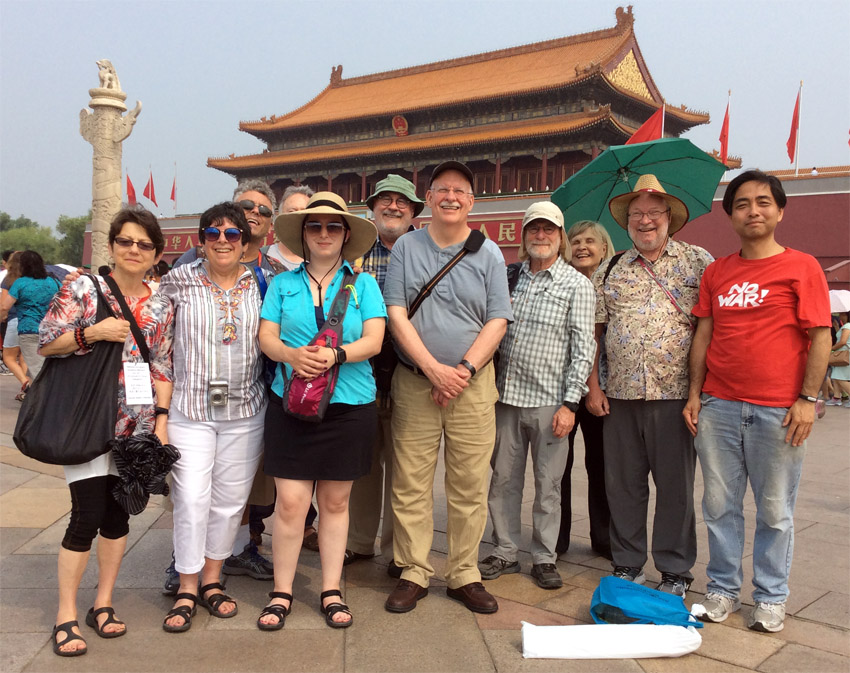
Delegation at the Tiananmen Square
It’s Not Your Parent’s Old School Delegation Trip
While several activists from the delegations had traveled to China in the past, and they have many Chinese-American friends, they still didn’t expect what they saw.
The delegation successfully accomplished the goal of helping promote a deeper understanding of China , and meeting Chinese activists to build a bi-national activist solidarity movement for peace, workers & economic justice. We visited revolutionary museums to study history, and met with a wide range of people, including: both left and right-wing people, middle-class Chinese, western migrants (AKA “expats”), NGO workers, government officials, factory workers, farmers, students, university scholars, Maoist and left-wing cyber activists. It helped North American activists better understand Chinese society, history, culture, economics, and politics, and how to build bi-national activist solidarity in the future.
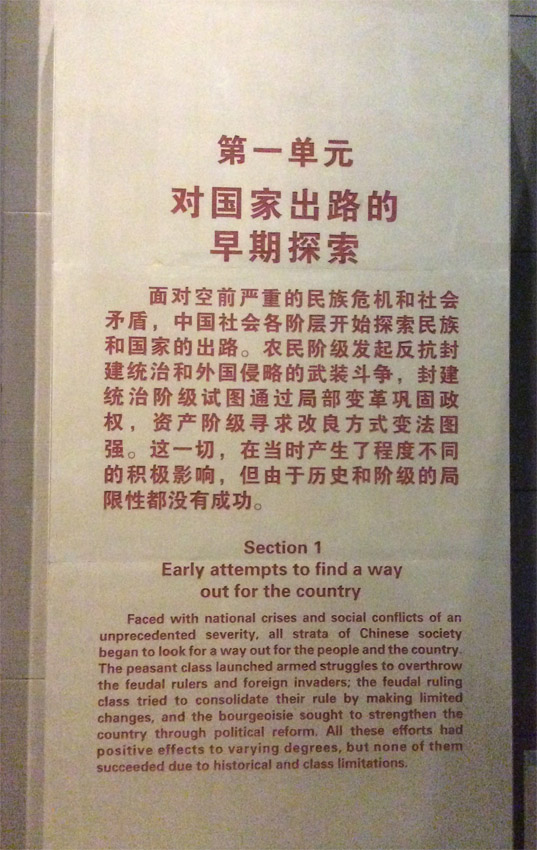
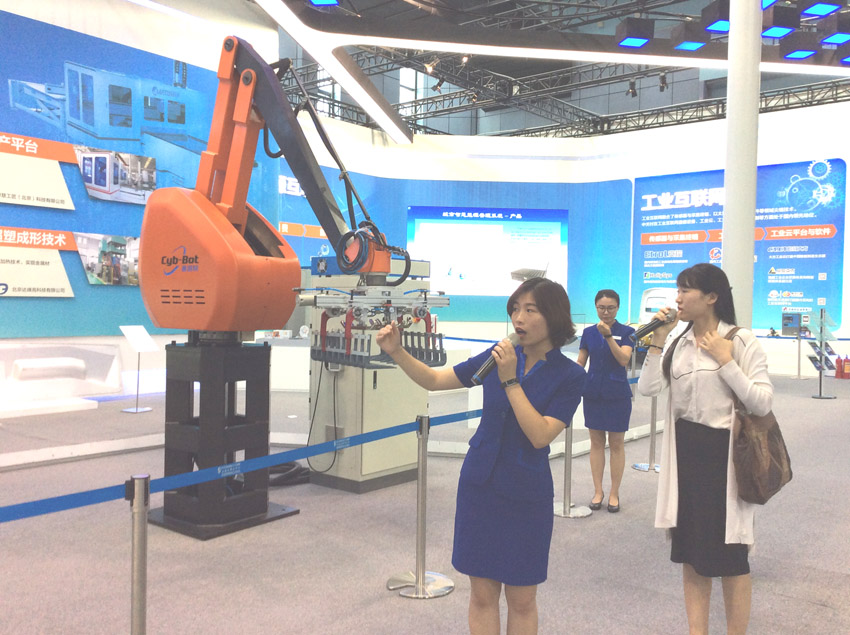
Chinese revolutionary history “The Road of Rejuvenation” exhibition at the National Museum in Beijing (left) High-tech exhibition at the Beijing’s Zhongguancun Exhibition Center (right)
Some Highlights
During the 10-day trips, we visited many interesting places and met many people, including:
Beijing Migrant Workers Home Cultural and Development Center: located at Pi Cun, suburb of Beijing, it’s one of the biggest independent migrant workers centers in China. They have their workers' co-op factory, publishing house, theatres, performing groups, rock bands, museums, shops, school, retreat and organic farm. We discuss with center organizers their work, and the condition of migrant workers in China.
Beijing Democratic Parties and the Democratic Building: Office of China’s eight national minority third parties; they all have seats in China’s National Congress, and their role in the Chinese political system. The North American delegation was surprised that China's parliament has third parties besides the Communist Party, and they have more influence than third parties in the U.S.
Meeting with left-wing cyber and grassroots Maoist activists in Beijing and Shanghai: The biggest surprise for the delegation—they had never met the broad-based, grassroots Chinese left-wing activists and hard-core Maoists, with face-to-face dialogue; both sides have many common perspectives.
Shanghai Comfort Women History Museum: One of the most violent sex war crimes committed by Japan during Would War II; however, it never became a justice campaign for western peace activists, because Japan is a western ally, even the peace movement considers Japan as their partner before any other Asian countries (although Japan invaded and committed many horrible war crimes).
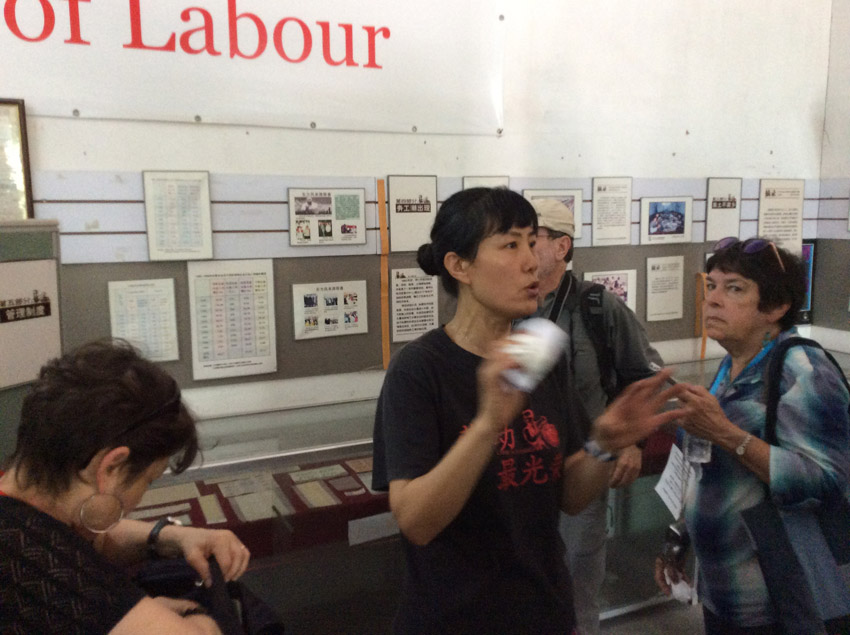
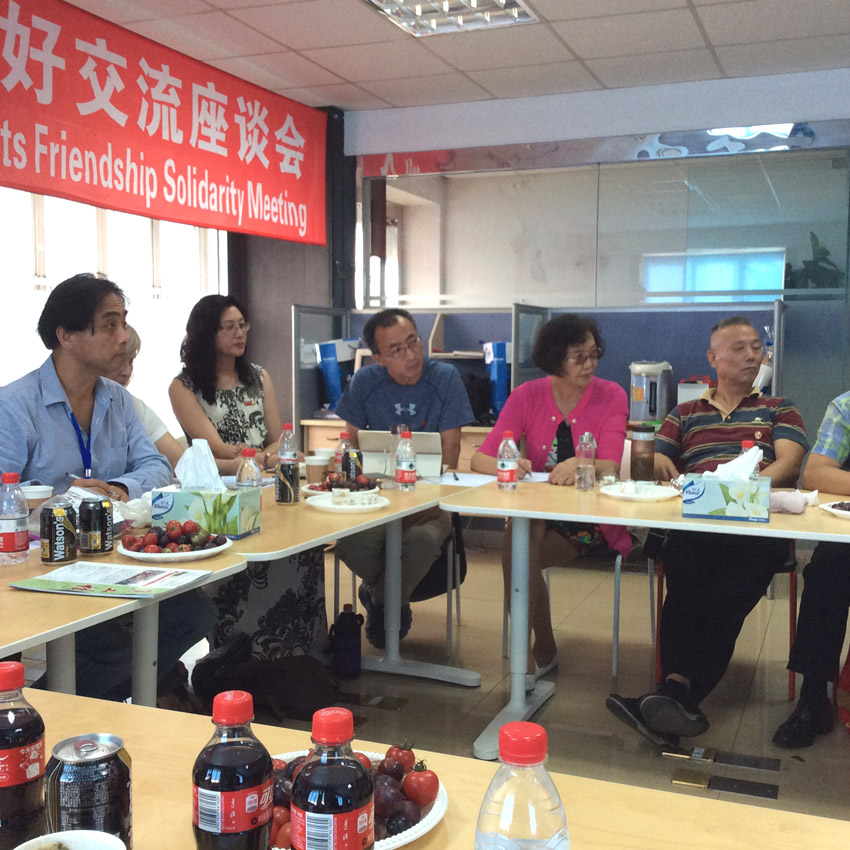
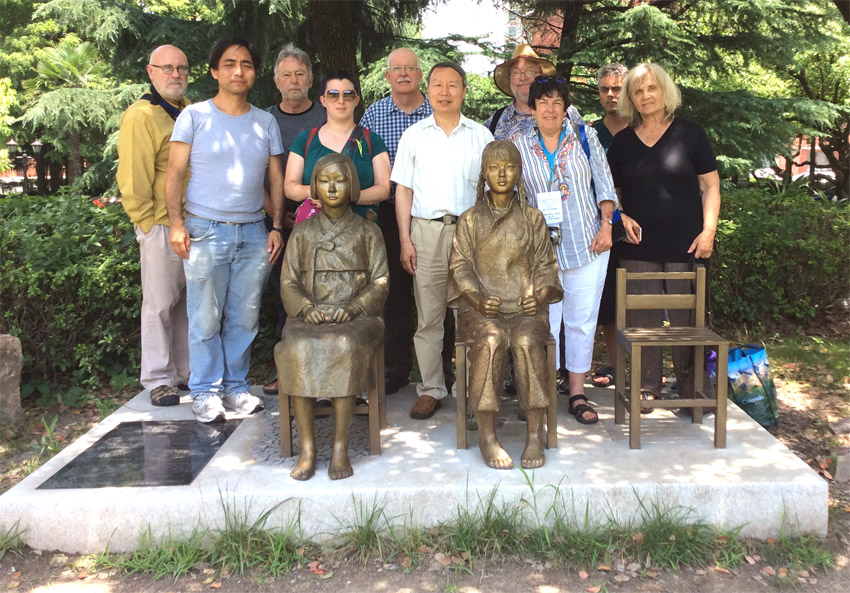
Beijing Migrant Workers Home Cultural and Development Center (left) Chinese Maoist activists in Shanghai (Center) Shanghai Comfort Women History Museum (right)
Understand Chinese Core Political Values In order to understand China, first need to understand how Chinese think, the |
|---|
It's the Language, Stupid!
Why do westerners, even with the best intentions, have difficulties meeting and understanding China? As "duh!" as it sounds, the simplest reason is language barriers, with the challenge of culture difference.
While many Chinese study English, and many of them can speak very fluently, they’re generally pro-western right wingers, they won’t bring westerners to the Chinese left-wing activist circles. For Chinese left-wing community, and average Chinese working class, most of them don't see any value in speaking English due to strong cultural pride. The language barriers prevent westerners (very few western activists study foreign languages beside Spanish) to truly understand China, and prevent them from meeting any left-wing activists.
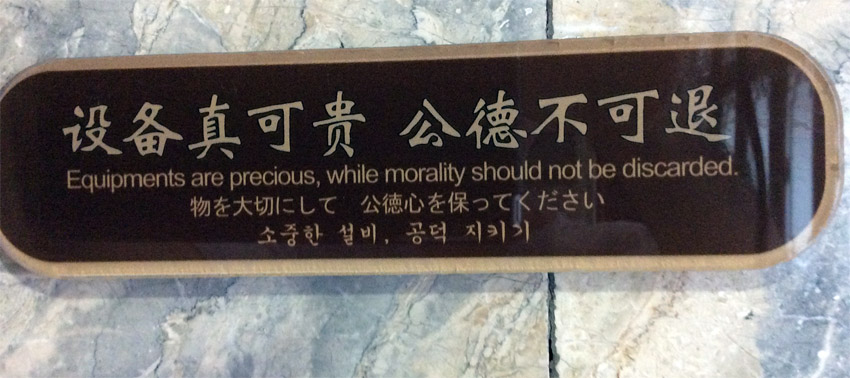
Funny machine English translation: it supposed to mean ”Equipments are expensive, please be considerable, don’t break it.” Because most average working-class Chinese consider study English is not so important for their life. The original Chinese paragraph is very beautiful and poetic, but when only rely on web translation it end up very funny outcome, it also prevent westerners to truly understand the Chinese thinking.
Lessons to the U.S. Activists: Don’t Bark Up the Wrong Tree!
The delegation was successful but not without controversy, “The delegation was fine with the exception of my fellow delegates…I don't think I have ever been smacked in the face quite so blatantly with White Privilege and unconscious racism...” one of the well-respected activists from the delegation conceded. In my opinion, white privilege was reflected in undeniable "white-savior" activist attitudes, assuming that any third world country's people are begging for their help to save them
How can U.S. activists build true international activist solidarity? My answer: be more sincere, humble, and respectful to the local customs & political views REGARDLESS of whether they fully agree with your core values—and be willing to report these finding uncensored to the U.S. activist communities. Be good listeners, research and study everything, learn their language; relax and have fun.
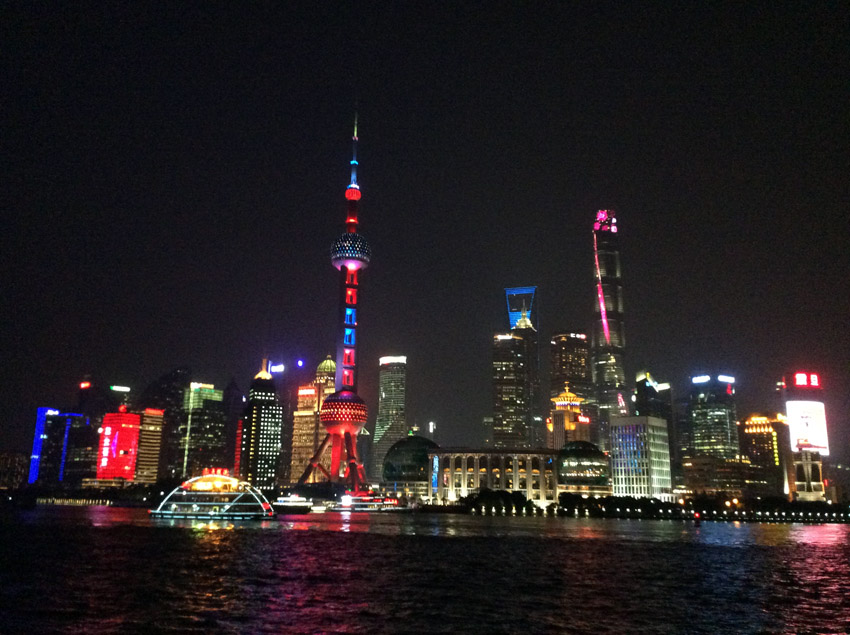
Shanghai Lujiazui financial center
Future Plans
We’ll continue organizing future China delegations, and we’re aiming to build a new China-U.S. bi-national activist network. Our next delegation will be December 26, 2017 – Friday, January 5, 2018 China: Pearl River Delta Region - Shenzhen, Dongguan, Hong Kong Labor, Globalization, Migrant Workers. We look forward to you joining us! For more information: http://www.ChinaDelegation.org
Photo album from the July, 2017 delegation
Beijing
Shanghai
High-Speed Train (From Beijing South to Shanghai Hongqiao station)
* Lee Siu Hin was born in Hong Kong of fifth generation Chinese migrants from Japan. Lee is a long-time international activist for over 40-years, national coordinator of National Immigrant Solidarity Network, Action LA Network, a coordinating committee member of UFPJ, and long-time reporter for Pacifica Radio KPFK-Los Angeles, reporting from former Yugoslavia, former Soviet Union, Angola, Mozambique, South Africa, Rwanda, Democratic Republic of Congo, Iraq, and Mexico. Currently, he’s traveling between China and the U.S. to organize bi-national activism work as well as medical solidarity projects
.
